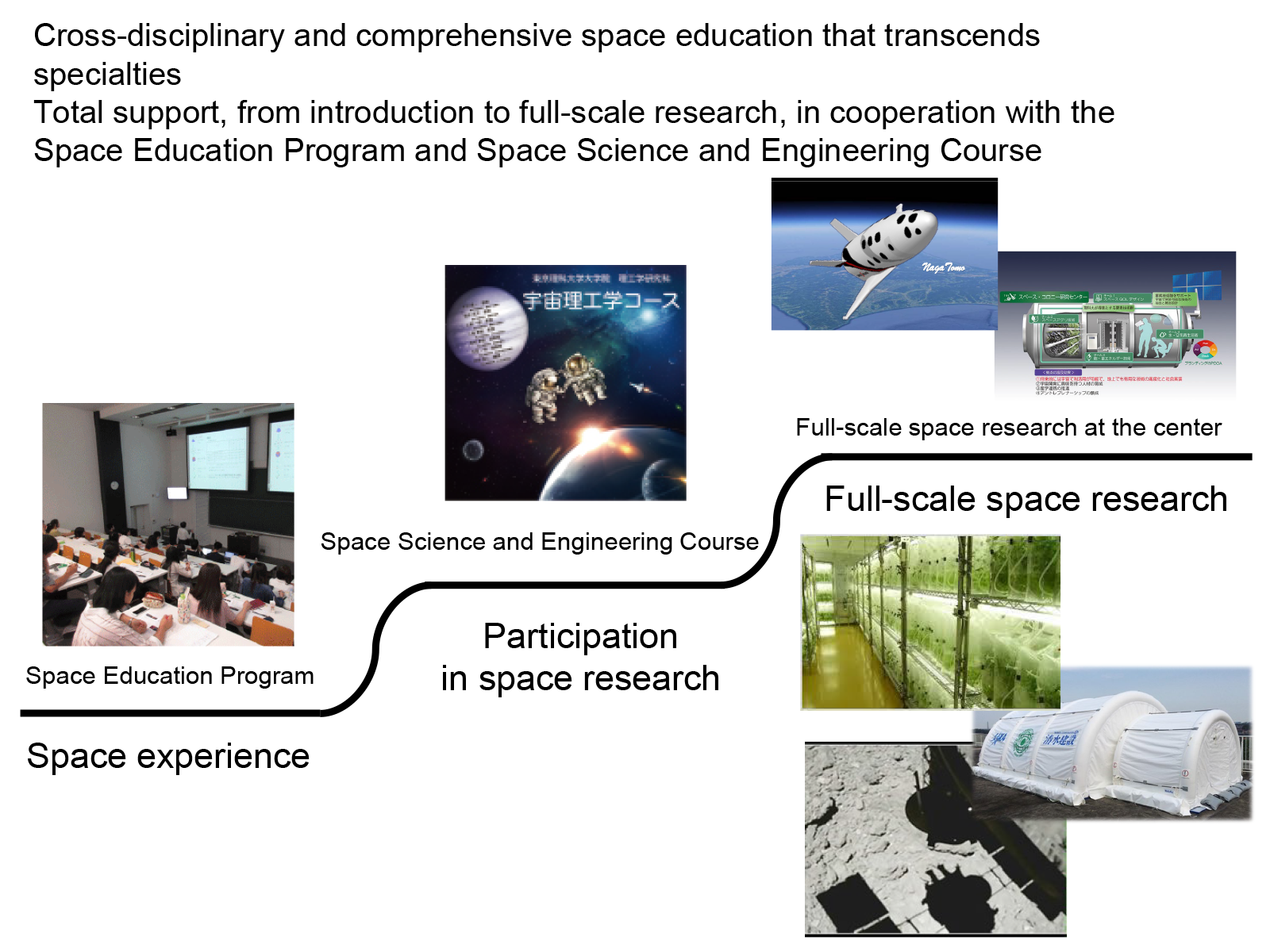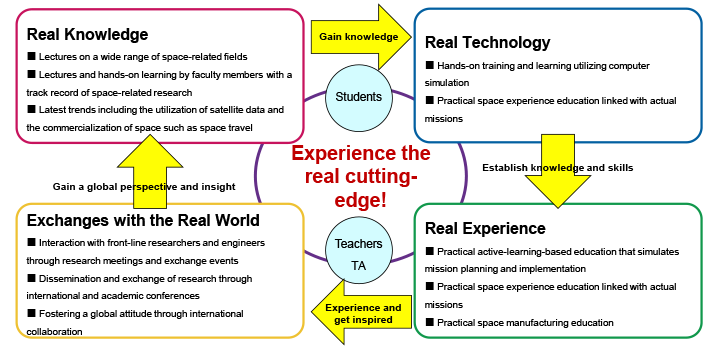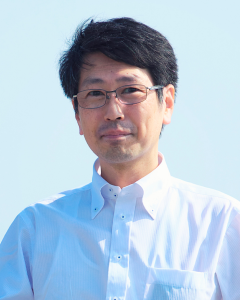Education Unit
This project is intended to build a human foundation for the next generation of space scientists and engineers who can play active roles internationally, and expand its coverage. In the four programs of “lectures,” “practical training,” “hands-on experience,” and “speeches,” we will cultivate science teachers who understand space science and technology through actual experience with cutting-edge science and technology, and who can disseminate its appeal to institutes of education to foster interest, as well as researchers and engineers who can tackle the future of space development and the space industry. We will also develop space education materials for use in high school integrated studies.
The contents of the project are all real and cutting-edge, including lectures and practical training by Mukai Chiaki, specially appointed vice president (astronaut), and faculty members who are space-related researchers belonging to Tokyo University of Science; facility tours and hands-on experience through collaboration with space-related organizations and companies; and lectures and exchange meetings with researchers and engineers who are currently studying and developing the latest space science and technology and space development situation.


Message
Shinichi KIMURA
Education Unit Leader, Director
Faculty of Science and Technology, Department of Electrical Engineering Professor

Tokyo University of Science has been implementing the “Space Education Program” with the support of the Ministry of Education, Culture, Sports, Science and Technology since 2015. One of the keywords of this program is “real.”
When I was a fledgling researcher, I had the privilege of participating in the development of Engineering Test Satellite VII, the world’s first test satellite for robot satellite technology. I was thrown into development as an amateur who didn’t know the first thing about space, but the wonderful thing was that the “real” researchers and developers at the site never treated me as an amateur. Such experts know very well that when people try something new, compromise is not an option. At that time, I studied hard to keep up with the “real,” and learned from that experience that “when a person is treated as real, they will naturally become real.” The Space Education Program treats participants as “real” because we believe that it makes them “real.”
Space systems are broad-ranging, so it is crucial to comprehensively work on various specialties in order to build the systems. When developing a space system, we face tough system engineering challenges, such as how to achieve the optimum system with limited resources. These experiences are applicable not only to space systems but also to many other fields, making the space industry an excellent place for learning.
The Space Education Unit will develop and apply a system for practical and comprehensive learning, focusing on “real” experiences, while utilizing the results of the Space Education Program.


